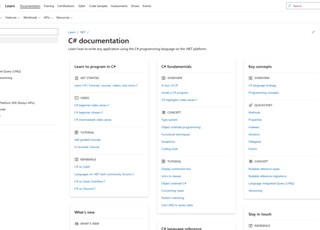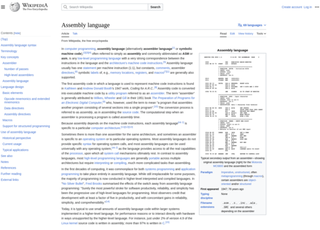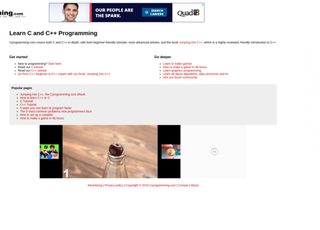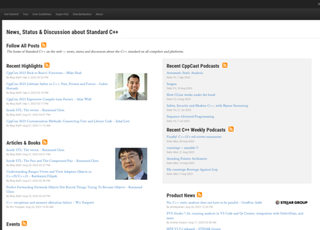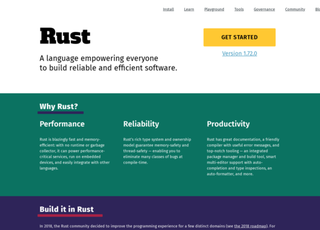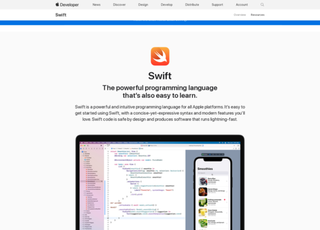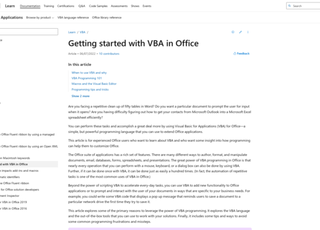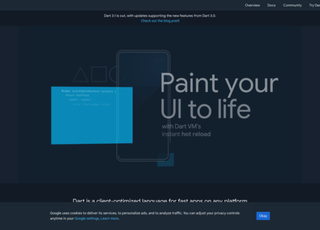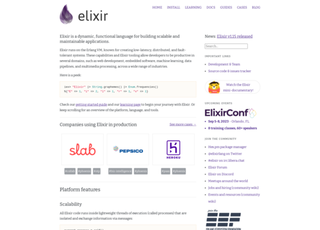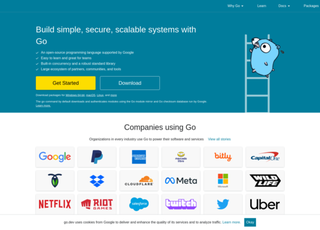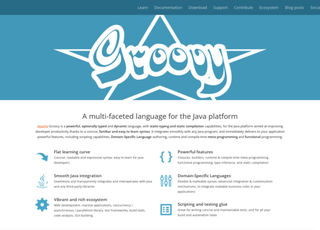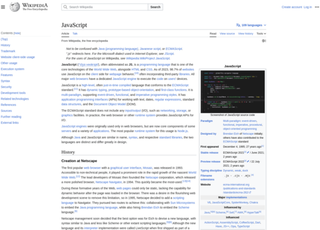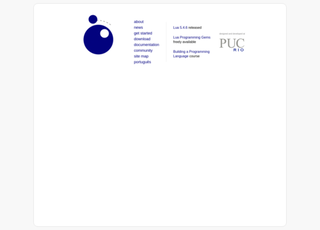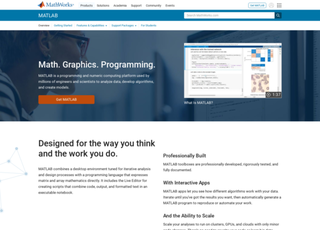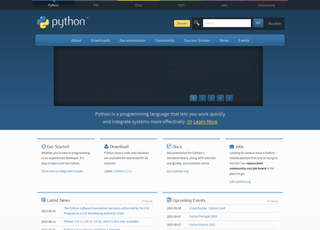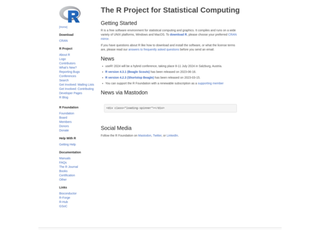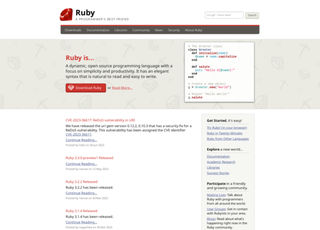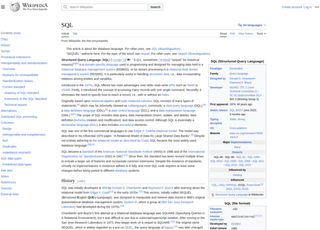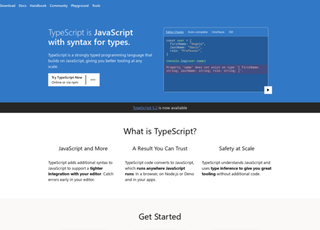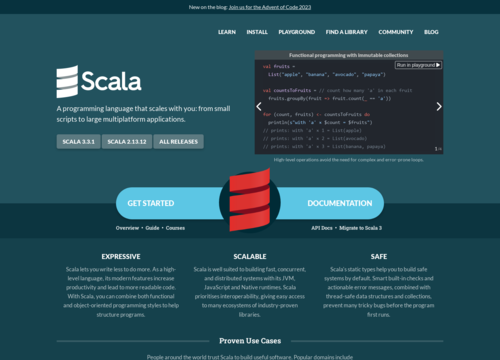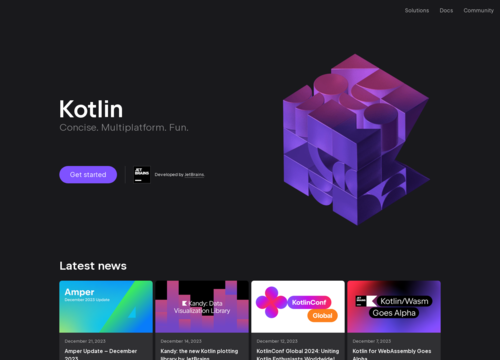PHP
PHP (originally Personal Home Page, now PHP: Hypertext Preprocessor) is a widely-used, open-source scripting language that is especially suited for web development. PHP can be embedded into HTML, which makes it a popular choice for creating dynamic web pages.
History
PHP was created by Rasmus Lerdorf in 1994. Over the years, it has undergone significant development and improvements, leading to the PHP 7.x and 8.x series, which offer substantial performance gains over previous versions.
Features
Server-Side Scripting:
PHP is executed on the server, and the result is sent to the client as plain HTML.
Cross-Platform:
PHP runs on various platforms (Windows, Linux, Unix, macOS).
Database Integration:
Supports many databases like MySQL, PostgreSQL, SQLite, and others.
Extensions and Libraries:
There are extensions for various tasks such as graphics, XML parsing, encryption, etc.
Syntax
PHP scripts can be embedded in HTML using the <?php ... ?> tags. For example:
Fundamentals
Variables:
$variable_name = value;
Data Types:
PHP supports different data types, including integers, float, string, array, object, resource, etc.
Operators:
Arithmetic (+, -, *, /), assignment (=), comparison (==, !=, ===, !==), etc.
Control Structures:
if, else, while, for, foreach, switch, etc.
Functions:
PHP has built-in functions and allows custom function definitions.
Advanced Features
Object-Oriented Programming (OOP):
PHP supports classes, inheritance, interfaces, traits, etc.
Sessions and Cookies:
For maintaining state and persistent data across page requests.
Error Handling and Logging:
Provides mechanisms to handle and log errors.
File System Access:
PHP scripts can read/write files on the server.
Database Interaction
Using the MySQLi (MySQL Improved) or PDO (PHP Data Objects) extension, PHP can connect to databases, execute queries, and fetch results. For example:
Frameworks
To make development faster and more secure, various frameworks have been developed for PHP, including:
Laravel:
A popular, elegant, and well-documented framework.
Symfony:
A set of reusable PHP components and a framework.
CodeIgniter:
A lightweight framework.
Zend:
An enterprise-level framework.
Phalcon:
Known for its speed since it's built as a C-extension.
Security
Like all web technologies, PHP applications can be vulnerable if not developed securely. Common security concerns include SQL injection, XSS (Cross-Site Scripting), CSRF (Cross-Site Request Forgery), and session hijacking. Developers use best practices, libraries, and frameworks to mitigate these risks.
Performance Optimizations
Over the years, the PHP community has developed several tools and practices to optimize the performance of PHP applications:
OPcache:
Bundled with PHP starting from 5.5, OPcache improves performance by storing precompiled script bytecode in the memory. This means PHP scripts don't need to be loaded and parsed with every request.
JIT (Just-In-Time) Compilation:
Introduced in PHP 8, JIT compilation can substantially improve performance for specific workloads, especially computational ones. However, its benefits for typical web applications are still a topic of research and discussion.
Profiling Tools:
Tools like Xdebug and Blackfire.io help developers profile their PHP applications, identify bottlenecks, and implement performance improvements.
Development Environment
LAMP/LEMP Stack:
Refers to the combination of Linux, Apache (or Nginx for LEMP), MySQL, and PHP. It's a popular environment for deploying PHP applications.
Local Development Tools:
Tools like XAMPP, MAMP, and Laravel Homestead offer developers easy ways to set up a PHP development environment on their local machines.
Package Management:
Composer is the de-facto standard for managing dependencies in PHP projects. It allows developers to pull in libraries and tools from Packagist, the primary repository for PHP packages.
Testing and Best Practices
Unit Testing:
PHPUnit is the most popular testing framework for PHP, allowing developers to write tests for their code to ensure it works as expected.
Coding Standards:
The PHP-FIG (PHP Framework Interop Group) has formulated PSRs (PHP Standard Recommendations) to encourage coding consistency across PHP projects. Tools like PHP_CodeSniffer can be used to ensure adherence to these standards.
API Development
RESTful APIs:
With the rise of front-end frameworks and mobile applications, PHP is frequently used to develop RESTful APIs. Frameworks like Lumen (a micro-framework by Laravel) or Slim are often chosen for this purpose.
GraphQL:
Although not as widespread as REST, there's growing interest in GraphQL for API development in PHP. There are libraries like Webonyx GraphQL PHP that facilitate its implementation.
Deployment and Hosting
Shared Hosting:
Many shared hosting platforms offer PHP support, making it easy for beginners to deploy simple PHP applications.
Cloud Providers:
Cloud platforms like AWS, Google Cloud, and Azure offer services tailored for PHP applications. Tools like Laravel Vapor provide a serverless deployment platform for Laravel applications on AWS.
Containers:
Docker has become a popular choice for developing and deploying PHP applications, ensuring consistency across different environments.
Community and Resources
The PHP community is vast and active. Numerous resources are available online, including tutorials, forums, and documentation. Websites like PHP.net (official documentation), Laracasts (focused on Laravel), and phptherightway.com offer a plethora of information for both beginners and advanced developers.
PHP has evolved significantly since its inception and continues to play a vital role in the web development landscape. The key to successful PHP development lies in staying updated with the latest best practices, tools, and technologies while also ensuring a solid grasp of foundational concepts.





















